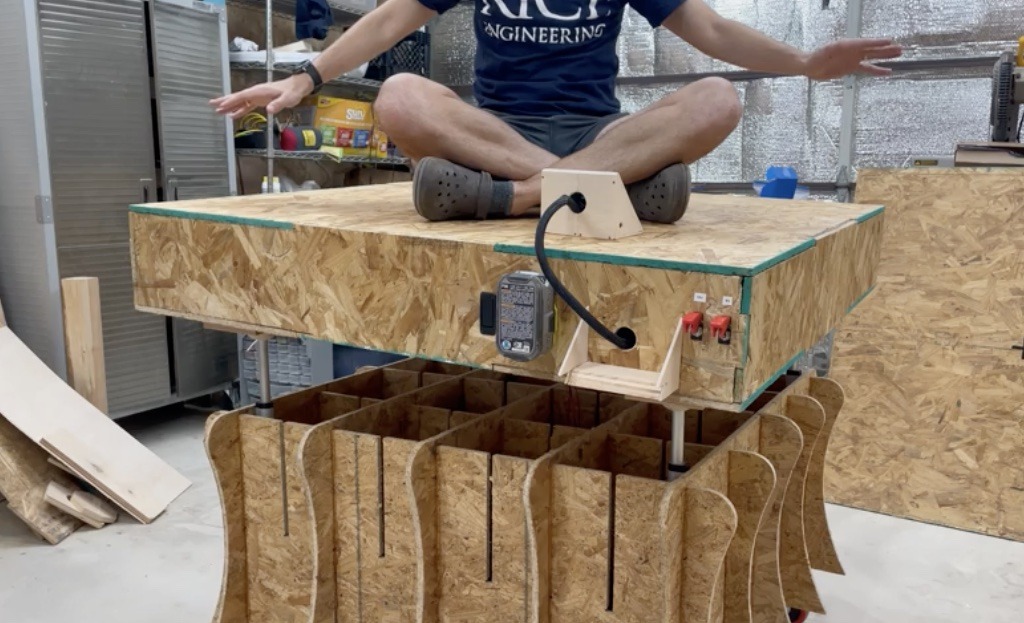Self-leveling workbench can travel without trouble

An actually level workbench is critical for many different jobs, such as pouring resin or calibrating sensors. But it is difficult enough to level a stationary workbench and that becomes a nightmare for a workbench that needs to roll around a shop on casters, as shop floors definitely aren’t level. That’s why Firth Fabrications crafted this self-leveling workbench to eliminate such headaches.
Firth Fabrications made this workbench because he needed a level rolling platform for his projects, but his garage floor is too far from level to rely on. Instead of manually leveling the workbench every time he moves it, he built this workbench than can level itself.
It does this with four heavy duty linear actuators — one at each corner of the table constructed of CNC-cut OSB (oriented strand board). Those extend or retract as necessary to tilt the top (relative to the base) to achieve level. It would have been possible to implement that leveling capability with just three linear actuators, but this is more robust and stable.
An Arduino Nano board uses an MPU6050’s gyroscope to monitor pitch and roll. In automatic leveling mode, it makes adjustments until both register as level. There are also two other modes: lift and manual. Lift raises and lowers the entire top, like a standing desk. Manual lets Firth Fabrications tilt the table in any way he wishes using a joystick. Power comes from an old 18V/4Ah Ryobi power tool battery, so the workbench is untethered.
While flatness is still a concern, FirthFabrications can now rest easy knowing his workbench is reasonably level.